|
Getting your Trinity Audio player ready...
|
Reading Time 6 mins
August 31, 2022
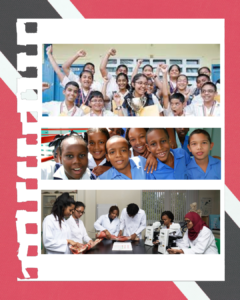 Set alongside other Third World nations, including those possessing great mineral wealth, Trinidad & Tobago remains exemplary. Eric Williams established a democratic state, which has survived several regime changes and one attempted armed coup. The main bugbear of politics in the 1950s and 1960s was the ethnic divide between Afro-, Euro- and Indo-Trinidadians. In that period, politics were attended by intimidation and patronage. Since then, much of the former has dissipated. Having lived next door to one another and attended school together since the 1970s, Indians, Euro- and Afro-Creoles are considerably more comfortable with one another, notwithstanding the increasingly frantic efforts of politicians to rally support along ethnic lines. Consequently, apart from the aberrant coup on July 27, 1990, there has been little political intimidation or violence since the 1970s, even when general elections heightened political tension five times between 2000 and 2010.
Set alongside other Third World nations, including those possessing great mineral wealth, Trinidad & Tobago remains exemplary. Eric Williams established a democratic state, which has survived several regime changes and one attempted armed coup. The main bugbear of politics in the 1950s and 1960s was the ethnic divide between Afro-, Euro- and Indo-Trinidadians. In that period, politics were attended by intimidation and patronage. Since then, much of the former has dissipated. Having lived next door to one another and attended school together since the 1970s, Indians, Euro- and Afro-Creoles are considerably more comfortable with one another, notwithstanding the increasingly frantic efforts of politicians to rally support along ethnic lines. Consequently, apart from the aberrant coup on July 27, 1990, there has been little political intimidation or violence since the 1970s, even when general elections heightened political tension five times between 2000 and 2010.
The alternation in power of the PNM, NAR, and UNC has accustomed Trinidadians and Tobagonians to Afro- and Indo- Trinbagonians in control and, from 2020-2005, a woman. It showed people that their fears of racial preferment did not necessarily accompany victimization. It also demonstrated the routineness of changing the governments. So far, the practice has been to use votes to remove an unsatisfactory regime. It improves the old racial voting pattern but leaves much room for improvement. Perhaps if potential leaders could inspire more noble aspirations instead of merely vilifying their opponents, the electoral behaviour might be less restricted to removing unpalatable regimes and more concerned with trying out promising ones.
Endless Education
Failures of the education system are neither as spectacular nor sudden as the rise of social deviance. Many basked in a Report based on official statistics that claimed that Trinidad and Tobago is considered one of the most educated countries in the World with a literacy rate exceeding 98%.” The word “excellence” is bandied about regularly. Students who achieve exceptionally high grades from primary to tertiary levels are lionized. And indeed, according to the World Economic Forum 2010, primary education in T&T ranked 39th out of 134 countries. Climbing higher up the educational ladder presents a different view, with T&T ranking 74th and 101st for secondary and tertiary education, respectively.
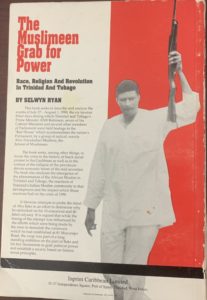
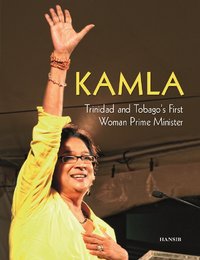 secondary school system since the 1960s mainly increased failure rates in the new schools, and educationalists claimed success to be impossible.
secondary school system since the 1960s mainly increased failure rates in the new schools, and educationalists claimed success to be impossible. Indeed, the authors argue that “Colonial and postcolonial systems … are designed to select and sort students, but the systems are also built on beliefs and attitudes, such as low expectations, inappropriate aspirations, and teacher behaviours and practices designed to ensure that not everybody learns.” The Report continues: “An essential part of the retention of elitism through local education reform is the continued impact of negative teacher expectations and practices within new sector schools.” According to the authors, these views have not changed even with universal secondary education and may even have intensified. Thus the educational system “retain[s] several elitist structural and behavioural elements [and Trinbago] now runs the risk of producing a low-quality and unequal
workforce, incapable of innovation, production, and creativity,” the study concludes.
That is just the tip since today’s highly educated minority is often shallower and more mercenary than in the 1960s and 1970s. Rigorously drilled to excel in examinations in the conservative 1980s and 1990s, they approached education in a purely utilitarian way. The expansion and localization of the energy industry and the establishment of a Faculty of Medicine in Trinidad offered graduates lucrative jobs in the sciences. However, no innovation or creativity has emerged from those sectors. The remainder sought careers in law, business or accountancy, to the extent that many top boys’ schools stopped offering subjects in humanities: those were fit only for a career in teaching, which provided neither a decent salary nor job satisfaction.
“[T]he creative vitality of the young will be grafted onto the solid stock of tradition, and what lovely fruit will emerge.”
The Starry Night
Amidst the darkness, lights twinkle, however. For instance, the Servol Organization, born out of the radical 1970s, has confronted the dereliction of the education system and family life for many from the lower class and has been so successful it has been rolled out internationally by UNESCO.
Private schools affiliated with foreign universities sprang up in the 1990s to cater to young people unable to enter UWI to study law, business, accountancy, or information technology and have expanded campuses and syllabuses throughout the island. And in 2004, the government founded the University of Trinidad and Tobago (UTT), with Prof. Kenneth Julien at the helm, designed to cater to the needs of the nation, which were not being fulfilled by the UWI. Initially conceived as a college of engineering, the UTT soon developed a broader vision and began offering courses in the arts, which were the stepchild at UWI in St. Augustine. An Academy of Performing Arts was created and immediately filled with bright, enthusiastic students aspiring to become musicians, dancers, and actors.
Alternative musical groups and artists are blossoming in smaller spaces, away from the large national venues, like wildflowers. The UTT animation and graphic design programs drew self-taught artists who cut their teeth on video games and Japanese anime and are honing their skills. A course in fashion design got a fillip when one of its tutor’s students, beauty queen Anya Ayoung Chee, won the US television competition Project Runway.
 These successes are owed to the talent and dedication of the students, whose passionate idealism relates to the 1960s and 1970s. At the same time, they are resolutely modern and digitally networked as never before. One social media group, for instance, We Does Draw, in which young graphic artists post and discuss their work and sometimes organize workshops and social events, has over 2,000 members. Virtual Museum of Trinidad and Tobago, a Facebook page on which 32-year-old amateur historian Angelo Bissessarsingh posts histories of places in T&T, has nearly 8,000 enthusiastic followers. The highly successful Bocas Literary Festival is a major event in the cultural calendar for both old hands and young spoken-word practitioners and now attracts major writers from the region.
These successes are owed to the talent and dedication of the students, whose passionate idealism relates to the 1960s and 1970s. At the same time, they are resolutely modern and digitally networked as never before. One social media group, for instance, We Does Draw, in which young graphic artists post and discuss their work and sometimes organize workshops and social events, has over 2,000 members. Virtual Museum of Trinidad and Tobago, a Facebook page on which 32-year-old amateur historian Angelo Bissessarsingh posts histories of places in T&T, has nearly 8,000 enthusiastic followers. The highly successful Bocas Literary Festival is a major event in the cultural calendar for both old hands and young spoken-word practitioners and now attracts major writers from the region.
The grand Banyan experiment that was Gayelle The Station was launched in 2004 to produce and broadcast only local programming and began winding down after six years of mediocre television to become a cable channel showing mainly reruns. And yet its founders, Christopher Laird and Bruce Paddington, UNESCO alumni from the seventies, have nurtured scores of young filmmakers who are producing new films of impressive quality. One filmmaker, Roger Alexis, has pioneered the use of hand puppets to create the highly successful online series I’m Santana, viewed by millions worldwide. Another one, Roger Guinness, produced Pothound, a short film that has won prizes ahead of thousands of international competitors. The annual T&T Film Festival, founded by Paddington in 2007, screens more and more local movies every year and in 2014, was listed in the US magazine Movie Maker as “one of the top 25 coolest festivals in the world.”
A cultural renaissance is taking place outside Carnival’s traditional folk arts that inspired Trinidad and Tobago’s nationalism. This isolation was necessary for the baby to not be contaminated with the decadence of its parents. But sooner rather than later, there will have to be a rapprochement. Then the creative vitality of the young will be grafted onto the solid stock of tradition, and what lovely fruit will emerge.
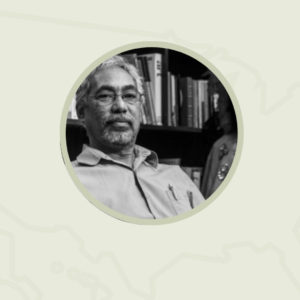 Kim Johnson is a writer and filmmaker.
Kim Johnson is a writer and filmmaker.
- Jerome De Lisle, Harrilal Seecharan, and Aya Taliba Ayodike: “Is the Trinidad and Tobago education system structured to facilitate optimum human capital development?” 2010 Conference Paper, UWI, Cave Hill. [↩]

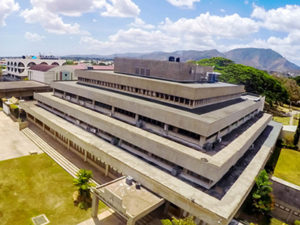
This is an important perspective in terms of what constitutes a quality secondary education. Should it include the arts and maybe trades at a more meaningful and significant level and therefore not leave swathes of young Trinbagonians exasperated and unfilfilled pursuing an exam oriented academic path? Many of our young people may have other desires and interests about what a satisfying professional life would look like for themselves. Add to that the boost in, for example the artistic outcomes for our already vibrant culture and we potentially have the proverbial “win win” scenario.
That is a point of profound importance because it raises the question: What is education for? To make obedient citizens? To contribute to building the economy and society? For self-fulfilment of the educated? To develop the critical thinking of citizens? The grammar school academic education was created in a colonial context which needed a handful of white collar workers, even fewer qualified professionals, and many manual labourers, even many unemployeds. Now what does the society need? Before you attempt to answer that question, factor into the account the climate change that raises the issues of species extinction, the ending of fossil fuels, the replacement of most decision making by artificial intelligence and other twenty-first century challenges. A short response to your question would suggest that the arts and trades begin to roll back the greed and industrial destructiveness we have unleashed on the earth.